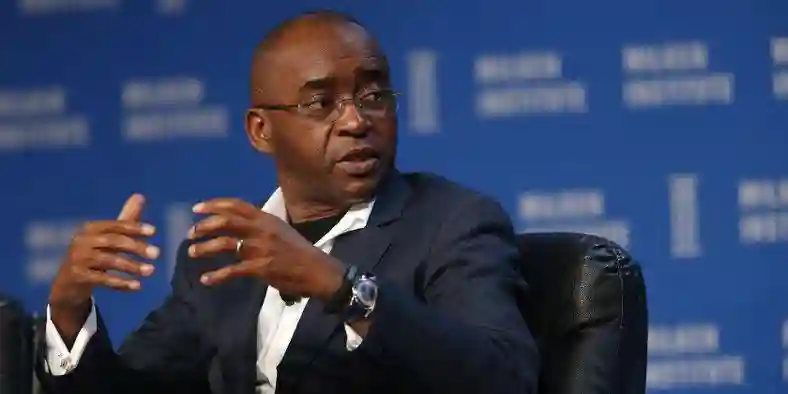Zimbabwean billionaire Strive Masiyiwa has seen his net worth fall by more than $2.5 billion since the first week of May, as the market value of his stakes in publicly traded companies on the Zimbabwe Stock Exchange (ZSE) continues to fall amid a heightened sell-off of equities by investors.
According to Forbes, Masiyiwa, Zimbabwe’s richest man and one of Africa’s richest men, has seen his net worth drop by $2.5 billion in less than two months, from $4.4 billion on May 1 to $1.9 billion on June 28.
Masiyiwa’s fortune is made up of a majority 52.85-per cent stake in Econet Zimbabwe, the country’s largest telecom services provider, and a 30.26-per cent stake in EcoCash Holdings, a diverse smart technology group that uses digital and financial technologies to create shared economies, drive financial inclusion and promote economic empowerment.
The $2.5-billion slump in his net worth can be attributed to a plunge in the shares of his publicly traded companies, Econet Wireless Zimbabwe and EcoCash Holdings Zimbabwe, whose market valuation has been impacted by the recent sell-off of shares on the ZSE.
Data tracked by Billionaires Africa revealed that the stock prices of Econet Zimbabwe and EcoCash Holdings have fallen from ZWL331 ($1.02) and ZWL165 ($0.51) to ZWL181 ($0.56) and ZWL78 ($0.24), respectively, since May 1.
Apart from the recent decline in the shares of his publicly traded companies, which has had a negative impact on Masiyiwa’s net worth, the decline in his wealth can also be attributed to the depreciation of the Zimbabwe dollar against the U.S. dollar.
The Zimbabwe dollar, which was trading at ZWL85.1 to the U.S. dollar a year ago, has since depreciated to ZWL325.44 due to the country’s increased inflationary pressures.
The recent decline in the shares of companies listed on the ZSE follows several warnings from politicians, investment firms, and financial experts after the Zimbabwean government raised the capital gains tax from a flat rate of 20 per cent to 40 per cent for shares held for less than 270 days to curb inflationary investing.

